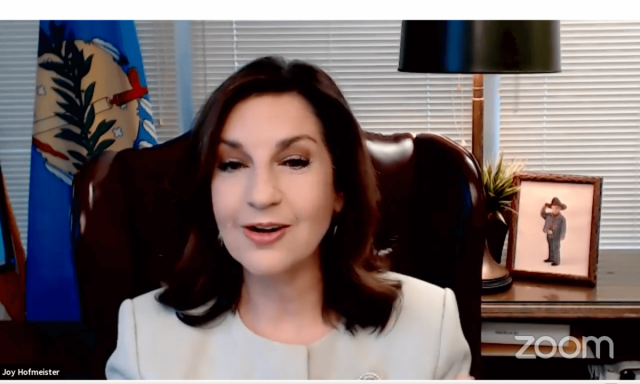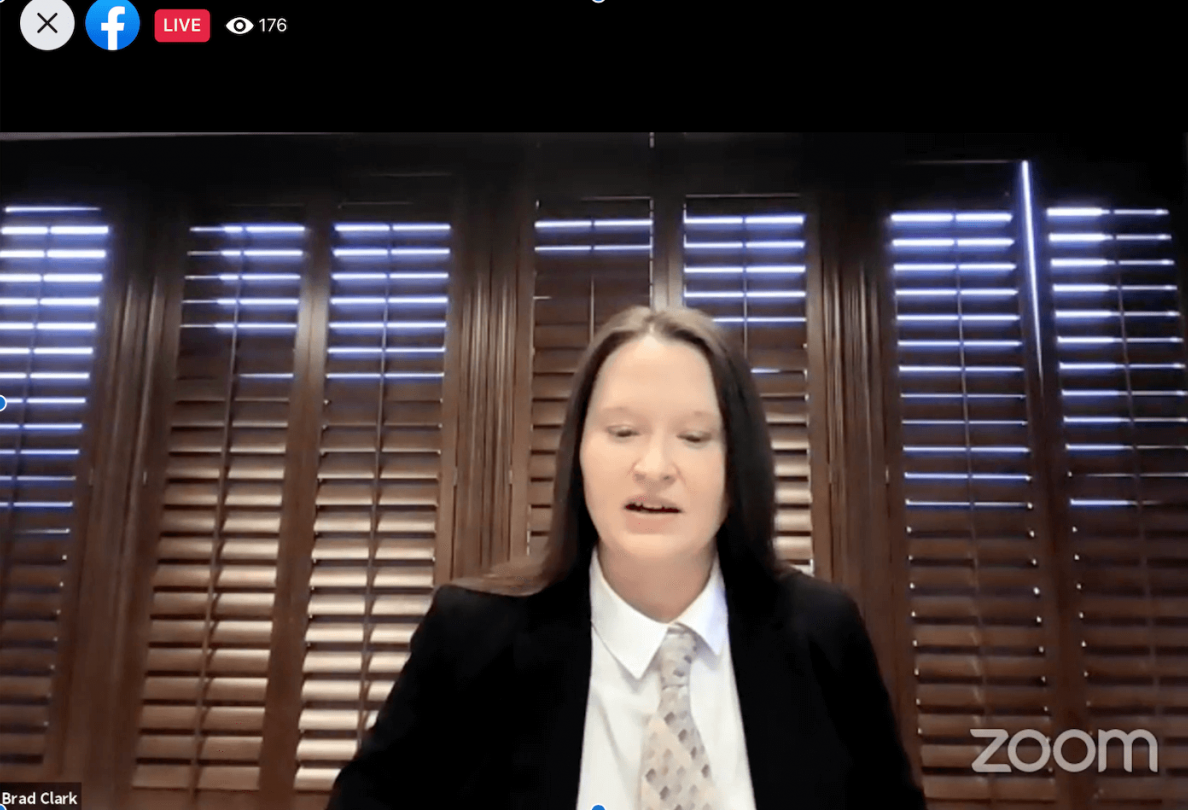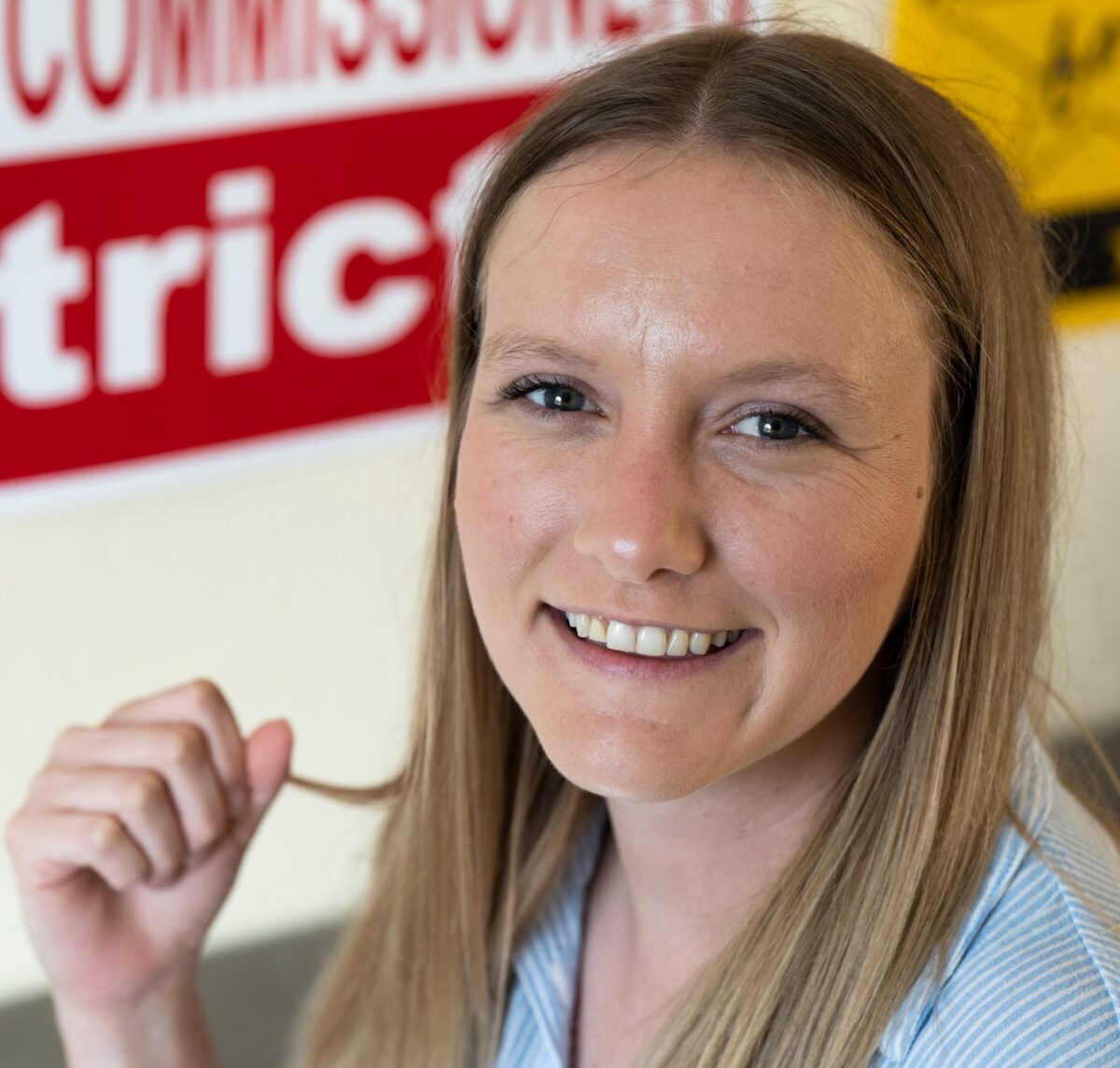
Following a nearly four-hour executive session to discuss multiple agenda items during a special meeting of the State Board of Education today, members unanimously approved a motion to require Western Heights Public Schools administration to appear at a special meeting April 9 to discuss the district’s accreditation.
The board also voted 4-3 to settle a lawsuit from the Oklahoma Public Charter School Association by equalizing state and local funding between charter schools and traditional public schools.
“This settlement is a tremendous step toward funding equity for the students who attend our state’s public charter schools,” Chris Brewster, president of the OPCSA, said in a statement. “We pursued this action based on the belief that our students deserve the same educational opportunities and funding as their peers who attend traditional public schools. It is fundamentally unfair for districts to receive funding for students who do not attend their schools. This settlement rights that wrong.”
Superintendent of Public Instruction Joy Hofmeister debated and voted against the measure.
“I do not support this nor do I think the board should vote to approve this settlement which came in yesterday,” Hofmeister said.
The board’s newest member, Trent Smith, made the motion for the resolution. Smith said he expects the 2017 lawsuit, which asked for funding differences to be reconciled for the past two decades, to be dismissed soon.
Smith said that constituted “a huge financial liability,” and he praised the policy of equal funding for charter schools.
“Kids that attend charter schools are no less valuable than kids who attend [traditional] public schools,” Smith said.
‘Utmost concern’ about Western Heights
In the Western Heights motion, the board expresses “utmost concern” about the operation of Western Heights Public Schools, mentioning multiple issues, including:
- failure to provide in-person instruction since March 2020;
- a decision in the spring of 2020 not to provide nutritional services to students;
- an audit report showing violations of state law, including the use of 2018 bond proceeds meant for contracting and repairing facilities to pay off debt instead;
- a board member consuming alcohol during a public meeting;
- a 23 percent drop in student enrollment, from 3,365 to 2,597 in the past year, and a loss of more than 100 staff members in the past two years;
- disharmony in the school environment and community.
At the meeting in April, the district may be subject to “action of its accreditation status including, but not limited to a warning, probation or non-accreditation.” Additionally, “The State Department of Education shall conduct a compliance and performance review of the school district’s operation, performance and outcomes and the district is strongly encouraged to offer in-person instructional delivery option for families on or before April 1.”
In October 2019, Western Heights parents requested an investigation of the district for issues including classroom overcrowding and hiring decisions. They also called for an investigation into Superintendent Mannix Barnes’ $220,000 salary and his work history and relationship with school-board members.
In February of this year, the Western Heights Education Association and community collected 998 signatures for a citizen’s petition requesting a special audit of the school district by the State Auditor & Inspector’s Office. The petition has since been delivered to the Oklahoma County Election Board for verification.
Epic misses payment deadline, board equalizes funding
During executive session, the board was also slated to discuss Epic Charter Schools, which has not a deadline to pay back the State Department of Education $11.2 million for over-expenditures and inaccurate reporting of administrative costs and the use of state dollars for expenses related to Epic California. The board unanimously approved the motion to recoup in October, following an investigative audit completed by the State Auditor & Inspectors Office. However, no action was taken after executive session at Thursday’s meeting.
Epic had 60 days to issue repayment after receiving the audit work papers, which occurred on Jan. 23.
The Tulsa World reported earlier this week that, rather than submitting the required payment, Epic’s attorney Bill Hickman sent the Department of Education a statement saying that Epic believes the state auditor overstated the penalty Epic should pay for underreporting administrative payroll costs by $8.1 million, and that Epic should pay a penalty of only $307,148. Further, Hickman wrote that Epic believes state statute says the Department of Education can’t go back more than a year to enforce administrative penalties. Hickman also said that the $203,000 transferred to Epic California was a loan and has been.
“We appreciate the State Board of Education taking no action today and allowing Epic’s due process and the State Department of Education’s due diligence to continue. Epic has not failed to meet deadlines and information requests imposed by the State Department of Education during this process. Rather, we have met all deadlines and requests and will continue to do so,” Epic Superintendent Bart Banfield said in a statement. “Further, Epic was still receiving work papers from the Auditor until Jan. 29, 55 days ago today. The work papers demonstrate a large error rate with the Oct. 1 audit, justifying that it should be highly scrutinized by any party drawing anything from it.”
After executive session, the board also approved a motion with a 4-3 vote to equalize funding between all public and charter schools in Oklahoma, settling a lawsuit with the Oklahoma Charter Schools Organization. Board members Carlisha Bradley and Bill Flanagan and Superintendent of Public Instruction Joy Hofmeister voted against the motion.
“I would like to say that based on legal advice this violates Oklahoma Statute, Oklahoma Constitution and the oath that I swore to uphold when I took office and I do not support this nor do I think the board should vote to approve this settlement which came in yesterday,” Hofmeister said.
Oologah-Talala Schools accreditation still under probation
Assistant superintendent of Oologah-Talala Public Schools Tony Sappington and Oologah-Talala Board of Education President Don Tice attended Thursday’s meeting to update the board on progress the district has made after its accreditation was dropped to “probationary status” in 2020.
The state board placed the district’s accreditation under probation owing to the mishandling of five sexual misconduct allegations against employees of the district at the time.
“Last time we met, there were five suggestions made to the district,” Sappington said. “Those five items, or suggestions, were completed, and I feel they were completed in a timely fashion.”
According to Sappington, the changes requested by the board and carried out by the school district include providing proof of Title IX training to Chief Deputy Superintendent of Public Instruction Robyn Miller, naming a Title IX deputy coordinator for the district, ensuring school board members receive Title IX training, creating Title IV onboarding training for all new district employees and developing a plan to receive feedback from the community. In federal code, Title IX features rules about harassment, discrimination and sexual misconduct, and Title IV involves federal financial student aid.
State Board of Education member Brian Bobek questioned Tice on how the district would handle a similar situation if it were to happen again in the future.
“I think the first thing to do is to immediately contact all of the individuals from your position on throughout the state. We would gather all of the information, do the appropriate investigations and then take whatever action is required and needed in an immediate fashion,” Tice said.
During the meeting, board member William Flanagan questioned the rest of the board on the end date for the probationary period.
“Do we have a termination date anticipated? At some point it loses its effectiveness,” Flanagan said. “At what point do we say, ‘You’ve done what you needed to do, and now let’s turn to normal dealings with the superintendent and the school and the State of Oklahoma?'”
The board’s general counsel, Brad Clark, said terminating the probationary status for the district is at the state board’s discretion.
“I think a natural point line would be the conclusion of this current school year or the fiscal year, but again, that is up to the board,” Clark said.
The board took no action on this agenda item.
“The reason that we did this was this is a very serious issue, so I appreciate that you’re moving in the right direction toward getting where the school district needs to be on this issue,” board member Jennifer Monies said during the meeting.
Rule changes for information literacy, technology instruction and teacher certifications

The state board unanimously approved administrative rule changes regarding information literacy, technology instruction and teacher certifications presented by assistant general counsel Lori Murphy.
“What these information literacy guidelines are, are the American Association of School Librarian standards essential for research skills and information use,” Murphy said. “These rules originally were adopted in 2007 based on those AASL standards from 2007. With those standards updated for 2017, we are aligning our code to also contain the updated standards as intended.”
The foundational concepts for information literacy and inquiry provide different ways of looking at research and information for students and teachers. The concepts cover inclusion, collaboration, curating, exploration and engagement. Each area is broken down into competency domains that include thinking, creating, sharing and growing.
“Those are guidelines for our educators and library media professionals to help students learn to use and research information,” Murphy said.
Murphy said the rule changes surrounding technology instruction are being modified to align with the best practices and guidance updated by the International Society for Technology and Education and will be based on seven competency areas, including being an empowered learner, digital citizen, knowledge constructor, innovative designer, computational thinker, creative communicator and global collaborator.
“Those again, being based on instructional technology, are something that our schools and students are adapting more and more to in recent years, especially with more distance learning over the pandemic,” Murphy said.
Changes to the alternative placement teaching certifications were updated based on the passage of SB 1115 during the 2020 legislative session.
“The alternative placement certification program is a way for individuals who hold a college degree but did not go to a traditional teacher training program to obtain teacher certification,” Murphy said. “To do that through the alternative program, those individuals have to demonstrate competency and relevant experience, and they also have to complete the same certification exams as traditionally certified teachers.”
The legislative change last year creates a limited exemption to the subject-area testing requirement for certain alternative-certification candidates. A certification candidate holding an advanced degree in the same subject area they’re applying to teach does not have to take the Oklahoma Subject Area Test for certification in that subject area. However, these candidates would still be required to take the Oklahoma General Education Test to receive alternative certification.
“There are a few exceptions to that,” Murphy said. “If you are being alternative certified in an area that requires an advanced degree to get that certification, you’re not eligible for the waiver of the test. That would only apply to school principals or superintendents, actual administrative positions, school counselors and library and media professionals.”
(Update: This article was updated at 10:38 p.m. to include information about the lawsuit settlement discussed above. It was updated again at 11:11 p.m. to include comment from Smith.)






















